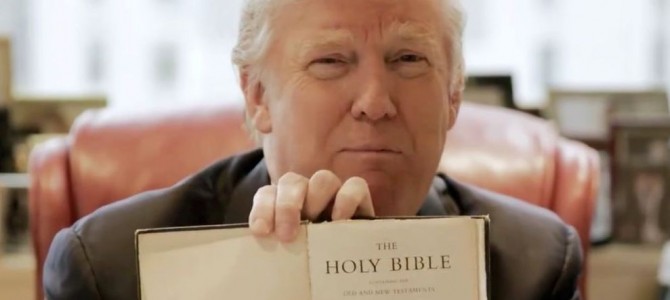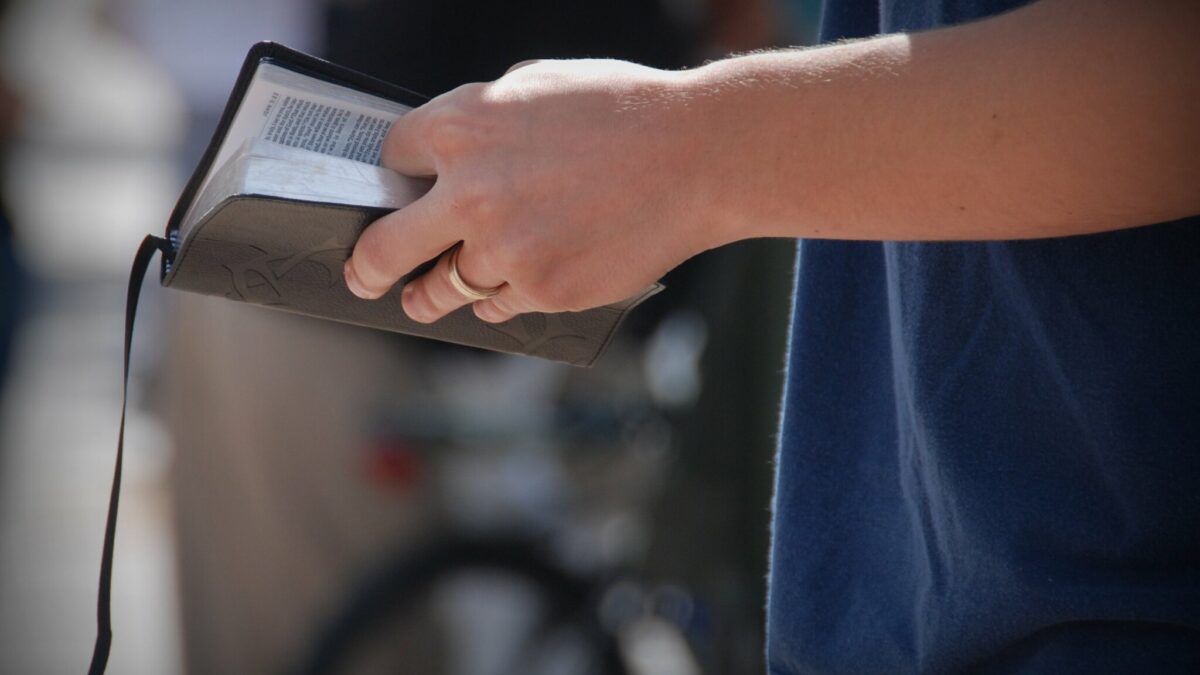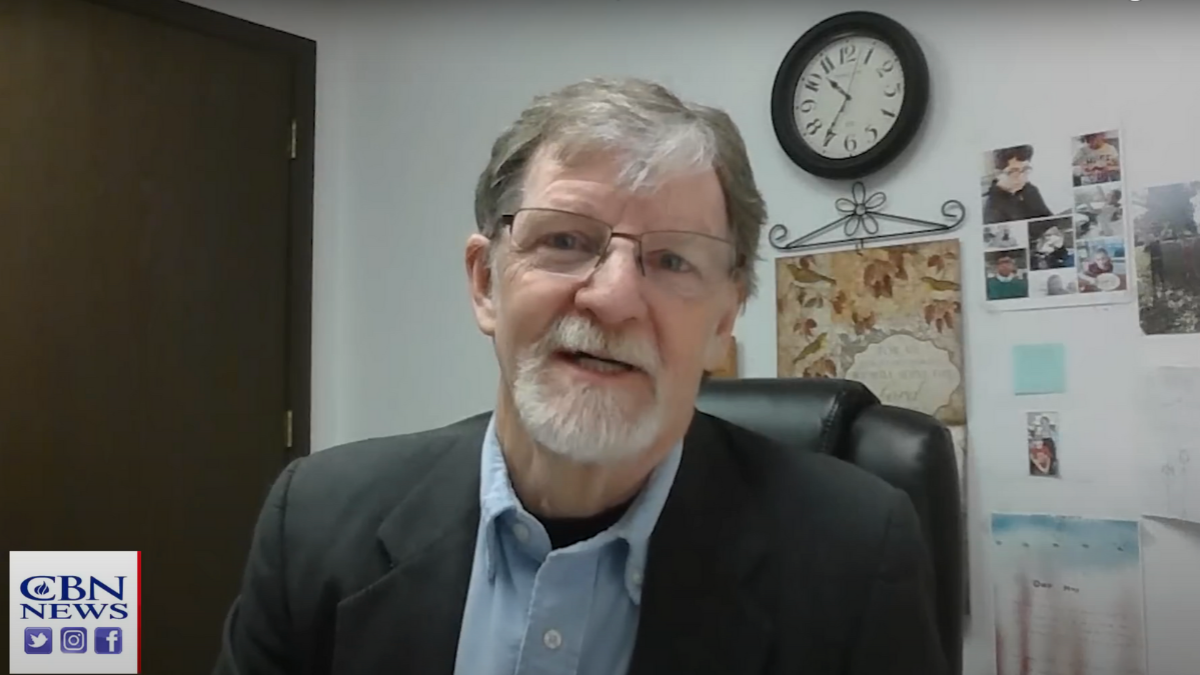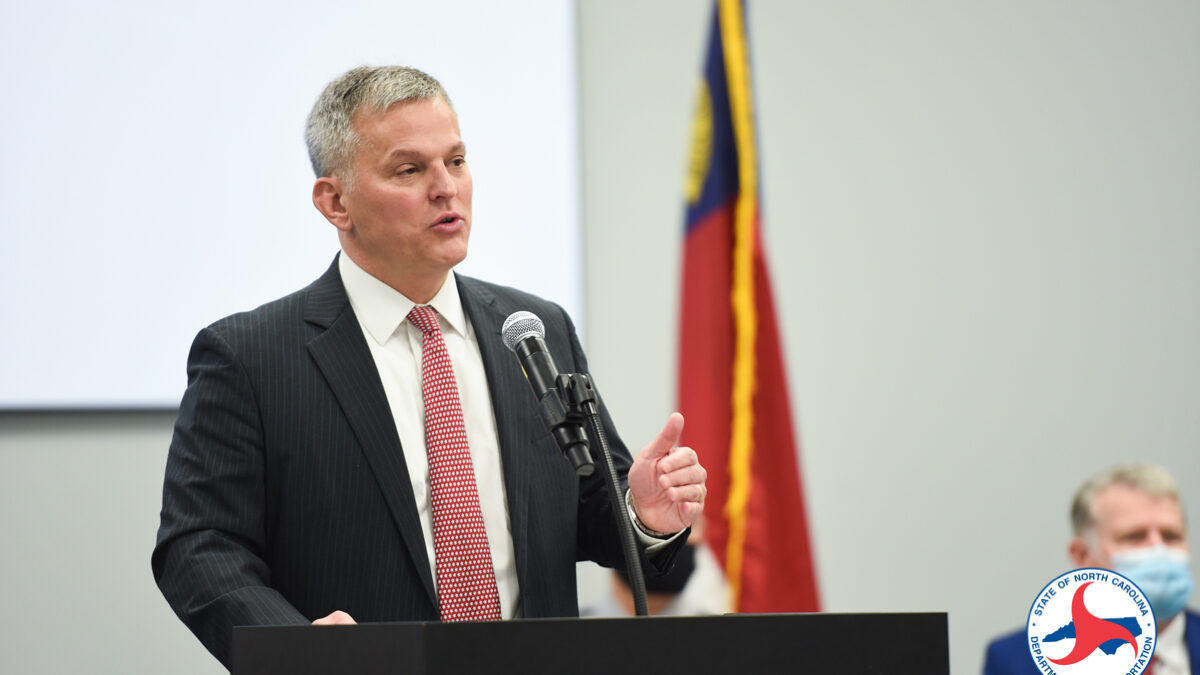
As Republican nominee Donald Trump continues to court the evangelical vote, those of use who care deeply about faith have been trying to read the tea leaves of his posture toward Christianity.
We’ve discussed his disquieting relationship with the more bombastic side of evangelicalism, analyzed those he has invited to pray on his behalf, and discussed why it matters. All that talk about Two Corinthians and not asking forgiveness matters, too.
Turns out, Trump’s most theological statement to date has been hiding in plain sight all along. A passage in his 2004 book “Think Like a Billionaire” was unearthed by Buzzfeed’s Andrew Kaczynski. The relevant passage, a section from the introduction to the book, reads:
Consider this new book the second part of an ongoing conversation between you and The Donald – the billionaire’s equivalent of those bestselling works of inspiration Conversations with God and Conversations with God, Book 2.
I’m sure some wise guy in the media is going to accuse me of comparing myself to God, so for the record, I do not think I am God. I believe in God. If God ever wanted an apartment in Trump Tower, I would immediately offer my best luxury suite at a very special price. I believe God is everywhere and in all of us, and I want every decision I make to reflect well on me when it’s time for me to go to that big boardroom in the sky. When I get permanently fired by the ultimate boss, I want the elevator to heaven to go up, not down.
Some of you may think it’s wrong to talk about God and business in the same breath, but God has always been central to our way of thinking about capitalism. The Protestant work ethic has thrived for centuries. The pursuit of prosperity is ingrained in our religious culture. The more you have, the more you can give.
Here’s something else about God that any billionaire knows: He’s in the details and you need to be there, too. I couldn’t run a business any other way. When I’m talking to a contractor, or examining a site, or planning a new development, no detail is too small to consider. I even try to sign as many checks as possible. For me, there’s nothing worse than a computer signing checks. When you sign a check yourself, you’re seeing what’s really going on inside your business, and if people see your signature at the bottom of the check, they know you’re watching them, and they screw you less because they have proof you care about the details.
Here are six takeaways from this deeply theological passage.
1. Trump Does Not Think He’s God
This is good news. Many people, especially wealthy, powerful Americans, suffer from the illusion that they are God. It’s not fashionable to say it, of course, but it’s quite common to act like it. People blessed to sit atop wealth, success, and power tend to think they alone brought wealth, success, and power into being through their own might. God responds to such foolishness out of burning bushes, lightning-cloaked mountains, and the quiet sigh of a final breath.
2. Trump Believes God Is Everywhere and In All of Us
While hinting at New Agey pantheism, this statement could also reinforce the Christian notion that mankind is made in the image of God and that each human being, whether in the womb, aged, hale and hearty, or disabled, carries the spark of God in them. This, and the Christian notion that Jesus died for all mankind, is the basis for Christian values of equality and human dignity.
Out of it flows all sorts of mercies: Care for sick, dying, hurting; concern for people in prison; valuing the disabled; valuing the life of unborn babies; the Christian-led movement to abolish slavery; support for civil rights; the belief that all stand equal before the law; not to mention missionaries in many lands feeding the hungry, healing the sick, providing homes for refugees, bringing solace to hurting hearts.
Some of Trump’s stated polices do not support the ideal that he claims here, and some of his statements directly rebut it, but in this, he is like most of us. If any of us, including Trump, really believed God was in each human being, we would treat people better. In its reality, if not in its execution, the statement can speak of Christianity.
3. Trump Would Give God the Best Luxury Suite at Trump Tower
This is actually my favorite part of the entire passage, probably because it is the deepest look into Trump’s soul. Sure, it’s narcissistic and shocking, but it’s also kind of sweet.
Worship can be described as taking the best of yourself and offering it to God. The Bible shows this theme again and again, in the grudging sacrifice of Cain compared to the acceptable sacrifice of his brother Abel (Genesis 4), in David’s joyful sacrifices to God (2 Samuel 2:24; 2 Samuel 6:16), in the delight of mystical creatures gathered around the heavenly throne, eternally casting their crowns before God as they sing together (Revelation 4).
Clearly the best Trump has to offer of himself is his best luxury suite at the Trump Tower. Probably more than any other thing, he identifies the best luxury suite at Trump Tower with himself, with his mark on the earth, with his best. Like the little drummer boy we hear about incessantly each Christmas, Trump has no gift to bring that’s fit to give a king, so he offers what he has.
It’s comical that the Lord of the universe should pay a special rate, but even that is Trump offering something to God. He hates to make bad deals, but he will for the Almighty.
4. Trump Has a Biblical Image of God
Trump uses two fantastic, and thoroughly Biblical, metaphors for God. God as chairman of the board echoes the Bible’s pre-modern description of God as King of King and Lord of Lords. Trump may add Boss of Bosses.
He is the ultimate authority, the final word, the judge of all, and the ruler of the universe. He decides who “ascends the elevator” and who “gets fired.” The Bible absolutely speaks of God as a judge, which is seen by many as a scary concept but can be comforting when confronted with all the evil in the world. The Bible even echoes the image of God as a boss, in Jesus’s Parable of the Talents (Matt. 25:14-30), and the Parable of the Workers in the Vineyard (Matt.20:1-16). In this corporate image, Trump is colorfully and completely aligned with biblical theology.
The second metaphor, God as a detail-oriented contractor is perhaps more biblical than Trump would realize. It starts in Genesis, when God carefully crafts a world and then breathes life into the humans he creates to live there. It’s echoed in God’s speech at the end of the book of Job, where he describes his creation of and care for the world.
Where were you when I laid the earth’s foundation?
Tell me, if you know.
Who measured it? I am sure you know!
Who stretched a measuring line across it?
What was it built on?
Who laid its most important stone?
When it happened, the morning stars sang together.
All the angels shouted with joy. (Job 38:4-7, but the entire passage is worth reading.)
It’s also echoed in Jesus’s statement that not even a tiny sparrow falls to the ground outside God’s care (Matthew 10:29).
5. Trump Connects Faith and Capitalism
“The pursuit of prosperity is ingrained in our religious culture. The more you have, the more you can give,” he writes. American theology tends to be more neurotic about money than any other topic, including sexuality, which is pretty straightforward although controversial. Some American Christians would read Trump’s thoughts here and take no pause at all. Others would reject it outright. I believe the truth is somewhere in the middle.
The Garden of Eden, which is the picture of the world as it was intended before humans broke it and ruined everything, has two elements that are presumably good because everything was good: first is sexuality linked to procreation, the second is vocation.
“And the Lord God took the man, and put him into the Garden of Eden to dress it and to keep it” (Genesis 2:15). God created work as a good and beautiful thing, a purpose and joy for mankind. It was only after sin entered the garden and mankind fell into brokenness that work became hardship and sorrow (Genesis 3:17).
Therefore, it is good for men (and women, but that’s another discussion) to work and receive the benefits of their labor. The Bible is full of stories about people who worked hard and became wealthy, and for whom that wealth was a sign of God’s favor and blessing. Abraham, Isaac, and Jacob all became wealthy men, from humble beginnings, and Boaz, David, Solomon all continued in the blessing. Indeed, God’s promise to Israel was a picture of earthly prosperity, a land flowing with good and abundant milk and honey.
Mixed into these images, however, are warnings. The Bible has more warnings, more than even against sexual immorality, about the wealthy using their wealth wrongly. It urges the powerful to be fair with the poor and weak, to not use their wealth to create injustice. It further urges the wealthy to be merciful, to give out of their abundance to those who have less. Trump references this ideal, saying that the more you have, the more you can give.
However, if the exhaustive research of the Washington Post is to be believed, Trump is a hypocrite on the order of the Pharisees Jesus warned about, who brag in public to gain the respect of others, not to help the poor (Matthew 6:1-4). The Washington Post has found no evidence of Trump’s gifts to charity, despite his insistence on his own generosity.
As an aside, Trump seems perhaps to have more recently embraced the prosperity gospel. I do not have room to go into why the prosperity gospel is heresy, but you can read more here.
One last, inadequate word on money: The proper theological image of wealth is of human beings as stewards, not owners, of God’s wealth. God owns all things, including our bank accounts, and expects us to use them wisely and honorably, and to give an account for their use. It’s a radical notion in a country, and in an evangelical movement, that believes it has produced wealth and owns all it produces. But, as Trump said above, we are not God. To whom much is given, much is required.
6. Trump Believes the Most Common Heresy
The most important, and most common, error in Trump’s stated theology is seeing Christianity as a ledger sheet. Trump says, “I want every decision I make to reflect well on me when it’s time for me to go to that big boardroom in the sky. When I get permanently fired by the ultimate boss, I want the elevator to heaven to go up, not down.”
This is a common, and vitally important, misunderstanding about what it means to believe in Christianity. Trump, like many people sitting in church each Sunday, seems to believe that we do some good things and we do some bad things and they’re all kept track of. When we die, the good and the bad are added up and those who are more good than bad go to heaven while those who are more bad than good do not.
This is not only incorrect, it is heresy. At its core, the notion is that we control our salvation and by good deeds can save ourselves. Christianity teaches that everything has gone so terribly off the rails that we can never save ourselves and that God is required to do it, through the sacrifice of Christ on the cross.
Trump’s ledger sheet concept is an attractive ideology because human nature tends to emphasize our own wonderfulness and minimize our disgustingness. We do not like to look ourselves in the eye and realize the effects of the harm we’ve caused. We do not like to see the tears, wounds, and brokenness that flow out of our actions, so we explain it away to ourselves. It is only when some of us come to the end of those explanations, to the end of ourselves, that we realize what horrible creatures we have been and what unforgivable pain we have caused. No amount of good deeds can erase this pain, and justice requires that it be addressed.
The message of Christianity is that there is hope for the evildoer, for the breaker of hearts and smasher of human beings, that bad deeds can be forgiven and washed clean. It is radical, even scandalous, that a murderer or cheat can be forgiven and stand in the ranks of the upright, but it is desperately good news when you come to terms with the fact you are closer to the murderer and cheat than to the upright.
If this writing holds, Trump, like many American nominal Christians, still believes in a tepid niceness of religion than the raw blood and bones of true Christianity. It’s a shame, because the rawness is beautiful reality, and the effects of embracing that reality life-changing.









